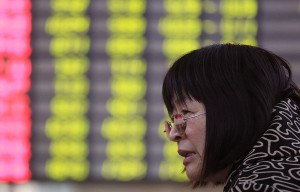The Joint Foreign Chambers has urged the government to expand the authority of the Philippine Economic Zone Authority (Peza) and pursue the creation of a new type of economic zones that will support businesses catering mainly to the domestic market.
Existing ecozones are focused on export-oriented business activities.
In a statement, the group urged Congress not to increase the number of the present type of ecozones, given the “unfortunate history of smuggling in special economic zones, which had deprived the government much-needed revenues and had shaken the confidence of foreign and domestic investors, particularly those in the automotive, petroleum and textile industries, in the system.”
“Rather than establishing new zones with new governing authorities, we strongly urge the (House of Representatives) to consider extending the coverage of the Philippine Economic Zone Authority (Peza). Over one million Filipinos work in the nearly 300 Peza-(administered) zones for almost three thousand locator firms,” the JFC noted.
“A new type of ecozones under Peza should be considered. (These zones should) support domestic as well as export production to a greater extent than the current rule requiring Peza locators to export 70 percent of production. This zone type could be called a Domestic Economic and Export Zone (D/EEZ),” it said.
According to JFC, priority should be given to ecozones that would be built in less-developed regions in the country, where there are readily available and highly trainable young workers.
This kind of economic zones, the JFC stressed, will support inclusive growth and the decentralization of manufacturing. However, it said, local governments should be prepared to provide long-term policy assurance to the investors.
“We are confident foreign and domestic business groups would be willing to work with Congress to prioritize any needed legislation for such zones, especially in regions most damaged by the recent typhoons and earthquakes,” it added.
The JFC earlier proposed new temporary incentives that were expected to boost D/EEZs, including low rent for factory space for a fixed period and transport access at competitive costs to domestic and foreign markets. The group is also suggesting the suspension of security of tenure and minimum wage to determine whether the move would attract investors, create jobs and increase productivity.—Amy Remo


